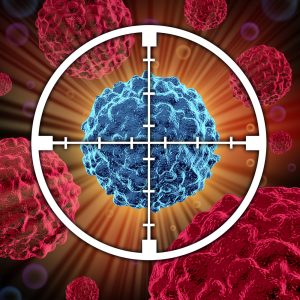 Divide & Conquer, a Cambridge, UK-based biotechnology company, emerged from stealth with £10m (approximately $13.1m) in Series A financing.
Divide & Conquer, a Cambridge, UK-based biotechnology company, emerged from stealth with £10m (approximately $13.1m) in Series A financing.
Medicxi made the investment.
Divide & Conquer initially focuses on glioblastoma, a lethal form of brain cancer, where cancer cells have been shown to communicate with each other via structures called tumour microtubes, also known as cellular parabiosis. Now, the company aims to disrupt the cell-to-cell communication mechanisms of solid tumour cells by leveraging the Prof. Frank Winkler’s research published in Nature in 2015 and again this month.
Cellular parabiosis refers to the ability of individual cells in a tissue to share and exchange contents: ions, small molecules, ribonucleic acid (RNA), proteins, and even whole cell organelles. This “cellular solidarity” is established via extensions such as “tunnelling nanotubes” (TNTs) and tumour microtubes (TMs), and transport vehicles such as exosomes, and pores such as gap junctions. Cellular parabiosis allows mutation-riddled tumours to survive and thrive, and even share their toolkit of resistance mechanisms.
The founding team of Divide & Conquer includes:
– David Grainger, PhD, Co-Founder and Executive Chairman, is also Chief Scientific Advisor at Medicxi, a leading life sciences venture capital firm, which he co-founded in 2015. Prior to that, he was a venture partner at Index Ventures for four years, having joined the life sciences team in 2012. On behalf of Index, he co-founded XO1 Ltd., which was acquired by Janssen Pharmaceuticals, among other companies. Before joining Index, he founded Funxional Therapeutics and the out-sourced drug developers Total Scientific and RxCelerate. Prior to that, Dr. Grainger led an internationally recognised research group in Cambridge University’s Department of Medicine, where he published more than 80 first author papers in leading journals including Nature, Science and Nature Medicine.
– Miroslav Radman, PhD, Co-Founder and Co-Chair of the company’s Scientific Advisory Board, is a genetics biology scientist with a specialty in DNA repair. Since 1998 he has served as a professor of Cell Biology at Paris Descartes University (PDU). Before joining PDU he spent ten years as a tenured research professor at the Free University of Brussels. He is also the co-founder of the Mediterranean Institute for Life Sciences in Split, Croatia. Among other advances spearheaded by Dr. Radman, he demonstrated the molecular mechanism of speciation (published in Nature) as well as a methodology that enables direct visualization of horizontal gene transfer (published in Science). He has received over 80 research grants, holds seven patents and is the author of nearly 200 publications on topics related to DNA, and is the recipient of a over a dozen science awards.
– Moncef Slaoui, PhD, Director, is also a Partner at Medicxi, which he joined in September 2017. Prior to Medicxi, Dr. Slaoui was GlaxoSmithKline’s Head of Pharmaceutical R&D, resulting in a substantial improvement in productivity, a late-stage pipeline comprising more than 30 phase 3 programmes and a totally redesigned discovery organisation comprising 38 highly-focused and accountable Discovery Performance Units. Outside of his role at Medicxi and Medicxi portfolio companies, Dr. Slaoui also serves as Chairman of Galvani Bioelectronics, founded by GSK and Alphabet Inc. subsidiary Verily Life Sciences.
– Frank Winkler, MD, PhD, Co-Founder and Co-Chair of the company’s Scientific Advisory Board, is a full professor of experimental neuro-oncology and managing senior physician at the Department of Neurology at University Hospital Medical Center and German Cancer Research Center (DKFZ) in Heidelberg, Germany. His laboratory focuses on mechanisms of brain tumour progression and therapy resistance. A major aim of his research is to translate paradigmatic discoveries into clinical concepts, both for gliomas and brain metastases. His lab has discovered tumour microtubes, and the malignant and resistant multicellular networks they generate, in glioblastomas and other incurable primary brain tumours. The current research focus lies on understanding the exact role of tumour microtubes for brain tumour resistance and recurrence; on intratumoural communication and tumour-brain communication in these networks; and on finding therapies that disconnect tumour cells, with the ultimate aim to tackle these difficult diseases in a completely novel way.
FinSMEs
23/09/2019